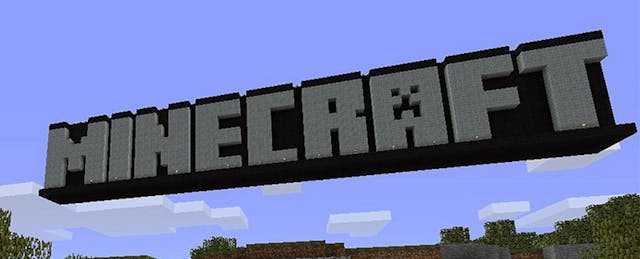On November 20, a controversial article came out with a quote from Tom Bennett, Director of London-based ResearchEd, regarding Minecraft, a game that has been highly regarded by a growing number of educators for its potential in empowering students with 21st century skills. The quote reads: "I'm not a fan of Minecraft in lessons. This smacks to me of another gimmick which will get in the way of children actually learning." He's further quoted to say: "We need to drain the swamp of gimmicks."
For anyone who has watched Reddit and social media, you’ll notice some of the following responses to Bennett’s thoughts, like “What?! Did he just?! Wow!” and “What a neophyte; luddite; barbarian of a bygone age; a swamp creature of the past.” One particular game-based learning edtech consultant describes Bennett as "an advisor with little to no practical experience".
Now, let me be clear. I do not support any of those above statements; in fact, to me, they sound like temper tantrums, and I’m one of the strongest Minecraft in education supporters. However, I figure we should get the outraged rhetoric out of the way so we can move to something more productive.I want to take a look at the basis of both of these arguments and see if we can glean some better way to move forward, as opposed to engaging in more mud-slinging because we're “passionate.”
Draining the swamp of edtech “gimmicks”
So, let's be honest with ourselves, that education “swamp” Bennett mentioned is actually filled with gimmicks. If someone working in edtech tries to tell you differently, that's a big red flag that either 1) they are lying to you, or 2) they are too ignorant and naive. Any school technology purchaser will agree that there are thousands of options when it comes to learning tools out there. Every which way you look, there’s a new technology claiming “pedagogical relevance” and “impact on learning”—and this is becoming especially true in the game-based learning environment.
So, when someone says that ‘the swamp needs to be drained’ (meaning that there are too many new and some appallingly ineffective tools), I agree. When they further point out that the way to drain that swamp is to think critically and require research and methodologically-sound proof of impact before a new roll-out of a tool, I cannot disagree. In fact, I have to support it! But therein lies a challenge and many more questions. How do we innovate education without trying new things? How much research before we can support a new practice? How deep do we want the research to be?
Now, the proponent of this "drain the swamp of gimmicks" comment is actually a very intelligent man; I respect Mr. Bennett’s viewpoint when he suggests that we need more research, pilots and data to support new tools. But, how do we move forward without standing still?
In the case of Minecraft, the tool is already used by thousands of classrooms—by thousands of teachers and students. Yet, beyond the anecdotal, there is little efficacy data available. We're not helping our case here. I only know of three teachers who have tracked effectiveness data, such as attendance, work completion, information retention, and overall changes in marks since using Minecraft (I pray there are more).
I imagine that all the missing data on student impact would support Minecraft's integration. I shudder to think that some “pioneers” may have missed a vital piece of the educational change puzzle.
Without empirical evidence to support it, are we surprised that there are doubters of Minecraft? I'm not.
What do we do?
So, do we stop using Minecraft? Do we wait five years for the research to catch up? I don't think that's necessary. In fact, I think that the data on student improvements, marks, and engagement is there, and easy enough to acquire to stabilize an empirical starting point. I made the comment recently that the research dots are there, but we need to connect them. And that connection starts with teachers sharing empirical evidence of impact.
Teachers: Start collecting student impact data, and be ready and willing to share these data points (within the confines of your relevant privacy legislation, of course). Surveys, for example, are a great way to gather data on engagement and learning, and to self-evaluate your own lessons and approach. If you have little experience with gathering the type of empirical data that begins to represent proof, speak with your administration or past professors, or reach out to a university to propose a study.
The bottom line is that we are going to see an increase in arguments for and against game-based learning, and the best way to support the truth is with the truth. Further, the truth can only be supported by the innovative educators who are now, and those who will begin, using Minecraft in classrooms.
So please, for the sake of all the kids, parents and teachers who are looking for change in the educational system: pay attention to, collect and share the data. If you have already been collecting data, please reach out to me.


